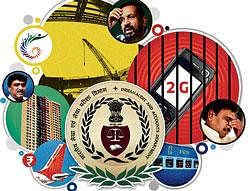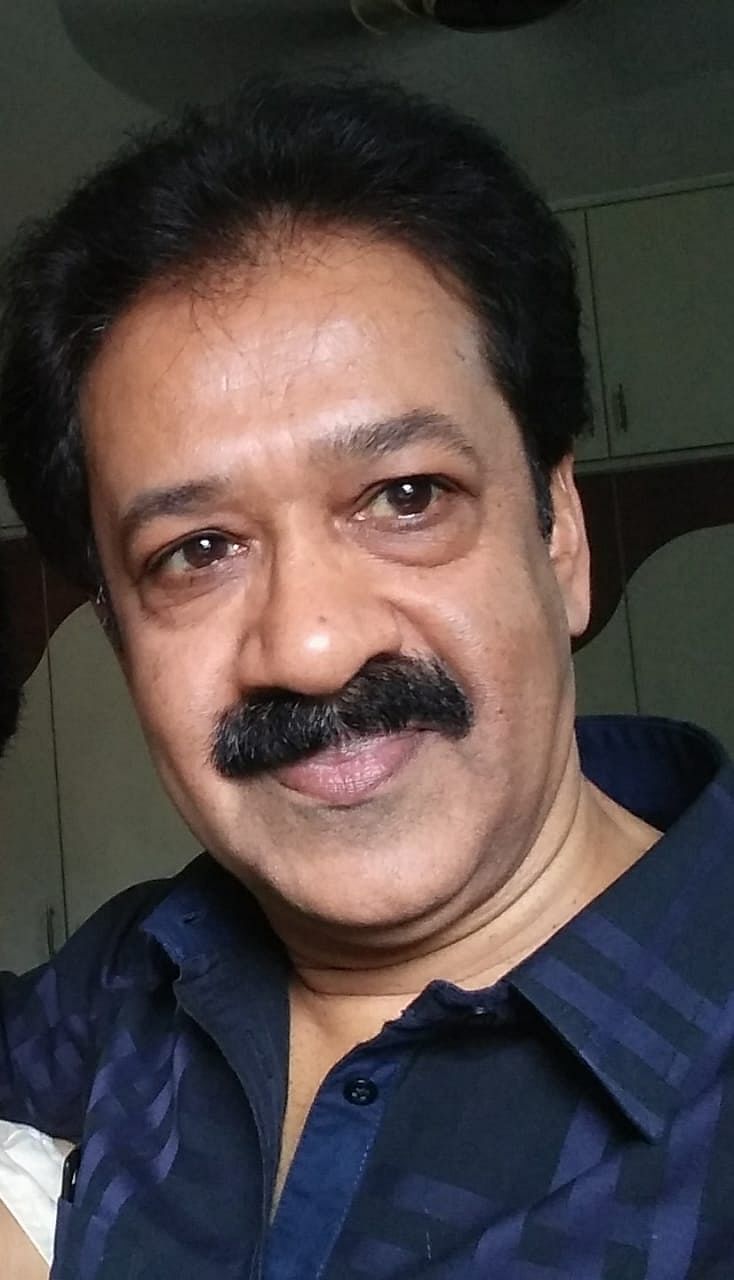

After judicial activism, it can well be said India is now going through ‘CAG activism’. General public is welcoming it but the ruling UPA and the private sector is fuming. The country’s government audit machinery which has entered the private sector domain now, has assumed the position of the Election Commission during the 1990s when T N Seshan headed and electrified it. It is another matter that the Comptroller and Auditor General of India Vinod Rai shuns publicity unlike the wily former CEC.
Rai’s CAG has been in the limelight ever since he highlighted the Rs1.76 lakh crore notional loss in the 2G spectrum scam and continues to occupy headlines for having exposed corruption in Commonwealth Games and Adarsh housing society in Mumbai, not to speak of oil ministry favouring Reliance Industries when it allowed one of the world’s top private sector companies to raise cost of developing the nation's largest gas fields by 117 per cent.
Union ministers M Veerappa Moily and Kapil Sibal have criticised the CAG. Prime Minister Manmohan Singh surprised observers when he lashed out at the auditor. But experts beg to differ. Said P V Indiresan, former director, Indian Institute of Technology, Madras while talking to Deccan Herald: “It is good that it has woken up. The CAG is the accuser. It does not have the authority to prosecute - only the government has that authority. What a pity that we have no independent prosecuting agency!”
The recent reports of CAG and a rattled government’s criticism of the auditor has only led to more conviction in the working of the mega organisation which recently celebrated 150th year of its functioning. Armed with powers to conduct performance audit, the CAG, which audits over 64,000 government units and comes out with 100-120 audit reports annually, created ripples when it brought out a report on CWG scam as well as a draft on KG basin. The second one saw a backlash from the company involved – Mukesh Ambani’s RIL which went on to question the authority of the CAG in conducting performance audit (the KG basin report is not yet out but the draft contents were leaked to media as also another on the working of Air India.
As the CAG report said, rules were bent to grant "huge benefits" to Reliance, the latter hit back saying that “Performance audit was beyond the scope of powers of CAG."
Reliance is understood to have told the government that CAG should restrict its function to audit of financial documents and ensuring an operator’s adherence to government and management committee mandate and not question ‘the technical and operational judgments of the operators that were in effect the best possible judgments at the time, based on the best information available.’
Performance audit worthy
According to an economist who did not want to be quoted, the KG basin and CWG reports showed that CAG was competent enough to conduct performance audits. “An audit body, which is well-recognised amongst its peers internationally, cannot be expected to do a poor job. Or else, we would not be having furore over performance audit of CWG”, he added. Rai himself told Deccan Herald that his organistion will next look into the performance of the mega Public Private Partnerships (PPPs) and working of the panchayat raj institutions (the ambitious and expensive Aadhaar programme, being implemented at the Unique Identification Authority of India, some say, should follow).
What makes the CAG’s recent reports more effective is the fact that they are more contemporary than in earlier years when no one even looked at CAG reports as they would take years to be submitted.
Still there are critics. Former CAG V K Shunglu, who is now heading the committee probing the CWG scam, says CAG was responsible for the failure to undertake an audit in the run-up to mega events like the CWG so as to weed out corruption at that stage. Moily who had criticised CAG for examining policy issues, said CAG does only post-mortem which can be done only after a person is dead. The PM has said: “Whether it is the CAG or a parliamentary committee, they analyse post facto. They have a lot more facts which are not available to those who take the decisions....”
Corporate ethics deficit
Rai, however, wants to go ahead, unmindful of controversy. He is not, obviously, impressed by the financial reporting of the industrial houses of the country. At a recent seminar organised by the Confederation of Indian Industry, he expressed concern over ethical deficit among corporates and asked India Inc to do some "soul searching" and improve business practices.
“Business practices of some corporate houses have become the subject of increasing public scrutiny for their perceived ethical deficit. Corporate India needs to go through a phase of reflection and soul searching," he said. "In recent times, corporate scandals in sectors like telecom and mining have caused widespread dismay at the current state of governance. The quality of financial reporting adopted by the companies needs to be substantially improved. Companies should follow high disclosure standards. The risk factors and off balance sheet items affecting company’s performance should be adequately disclosed.”
Notwithstanding the amendments proposed to the Audit Act, there are suggestions that CAG should be armed with judicial powers as in other countries. This becomes important as India is a signatory to the UN Charter against Corruption.
Although CAG reports are held in high esteem, the recent leaks – of draft CAG reports on KG basin, CWG and Air India - have forced it to lose some sheen.
Related stories
